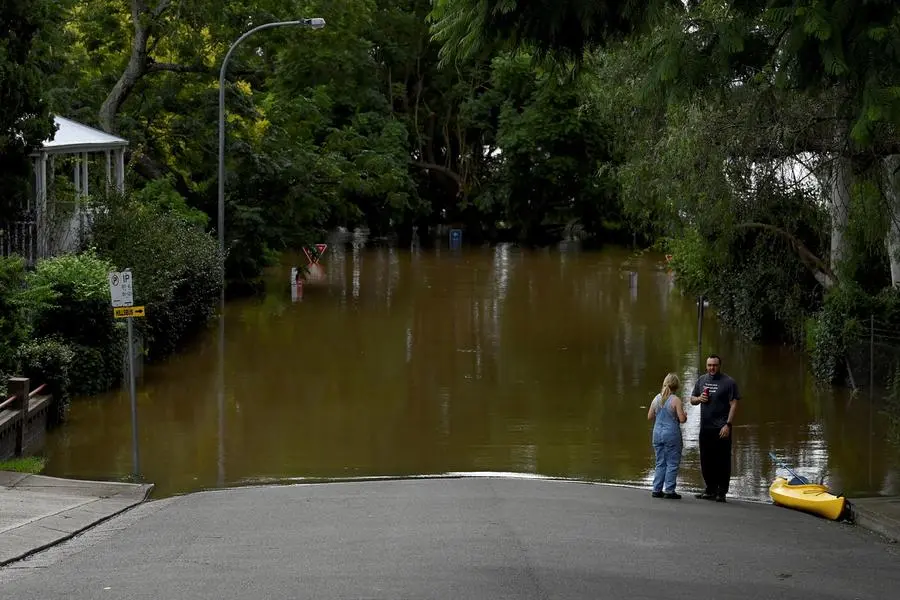PHOTO
SYDNEY - Torrential rain pummelled Australia's east coast on Thursday with Sydney receiving nearly a month's rain overnight, submerging the city's roads in flash floods and triggering evacuations as authorities warn of more rain through the day.
A man swept away by floodwaters in the city's northwest was rescued by emergency crews, media reported, while footage on social media showed vehicles struggling to cross waterlogged streets, fallen trees and debris floating in rivers.
Residents of a nursing home were evacuated overnight as emergency crews urged Sydney's 5 million residents to avoid unnecessary travel and brace for possible evacuation orders.
Overflow from a fuel pit at a site owned by oil refiner Ampol in Sydney's south caused oil to mix with flood waters but emergency crews said the spill has been contained and that there was no risk of danger in the area.
Sydney has received 1,226.8 mm of rain so far this year, more than its average annual rainfall of 1,213 mm. The tourist hot spot of Bondi recorded around 170 mm (6.7 inches) over the 24-hour period to 9 a.m. Thursday (2300 GMT, Wednesday), the weather bureau said. Over the next 24 hours, Sydney could get up to 180 mm of rain, the bureau said.
Australia's east coast summer has been dominated by the La Nina weather phenomenon, typically associated with increased rainfall, for the second straight year, with most rivers at capacity even before the latest drenching. Warragamba Dam, Sydney's major water supply, is expected to spill over on Friday, authorities said.
Three intense weather systems in six weeks have pounded eastern Australia, with several parts of northern New South Wales and southeast Queensland clocking record rains and Sydney registering its wettest March on record.
Climate change is also widely believed to be a contributing to the severe weather, which has raised questions about how prepared Australia is.
Several towns across northern New South Wales are still battling to clear tonnes of debris after two separate devastating floods in March but the latest weather event has smashed the state's central and southern coast.
(Reporting by Renju Jose; Editing by Christian Schmollinger)





















